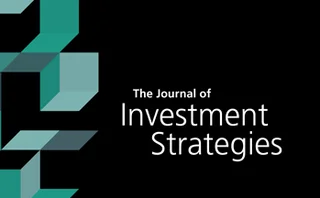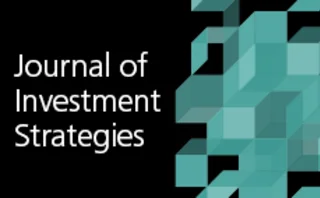Entropy
The relative entropy of expectation and price
The replacement of risk-neutral pricing with entropic risk optimisation
Research on the dynamic early warning effect on the manufacturing industry from the perspective of systemic financial risks: evidence from the Chinese market
Determination of the fraction of losses and their probabilities by type of risk and business line from aggregate loss data
An iterative copula method for probability density estimation
An entropy-based class of moving averages
The author proposes a family of maximum-entropy-based moving averages with a framework of a moving average corresponding to a risk-neutral valuation scheme for financial time series applied to generalized forms of entropy.
Scenario design for macrofinancial stress testing
The author presents an empirical approach to scenario design for selecting a stress scenario for international macrofinancial variables and compares this approach with a historical scenario approach.
Model risk quantification based on relative entropy
This paper proposes a minimum relative entropy technique for challenging derivatives pricing models that can also assess the model risk of a target portfolio.
A novel derivation and interpretation of the Kelly criterion
The authors apply an information-theoretical argument to a Bernoulli process to find least biased investment strategy consistent with expected exponential growth.
Deep hedging: learning to remove the drift
Removing arbitrage opportunities from simulated data used for training makes deep hedging more robust
Bank consortium seeks to cure post-trade data ills
Project led by Societe Generale uses privacy-enhancing technologies to tackle data management problems
A numerical approach to the risk capital allocation problem
The aim of this paper is to use a model-free, nonparametric approach based on the method of maximum entropy in the mean to solve the capital risk allocation problem.
In search of lost edges: a case study on reconstructing financial networks
In this paper, the authors review the different methods designed to estimate matrixes from their marginals and potentially exogenous information.
Equally diversified or equally weighted?
New diversification measure enables construction of equally diversified portfolios
A tech-driven transformation
A panel of experts explores how greater collaboration between risk and finance teams can garner significant benefits and add value, how technological innovation is making the regulatory landscape more complicated to navigate and produce transformative…
Sample dependence of risk premiums
This paper discusses the framework within which to study how sample dependence is transferred from the data to the premiums via the density.
Quantification of model risk in stress testing and scenario analysis
In this paper, the author's aim is to empirically analyze the numerical quantification of model risk, yielding exact buffers in currency amounts (for a given model uncertainty).
Value-ranked equity portfolios via entropy pooling
This paper demonstrates how to directly incorporate common value-investing idea into the portfolio optimization process.
Evaluating the risk performance of online peer-to-peer lending platforms in China
The objective of this paper is to select effective risk indicators and thus establish a risk index system of P2P platforms so as to evaluate the risk performance of these platforms in China.
Banks should quantify loan-loss model risk – academic
Models such as those used for IFRS 9, CECL or CCAR are prone to errors, and should be accounted for
The quickest way to lose the money you cannot afford to lose: reverse stress testing with maximum entropy
This paper extends a technique devised by Saroka and Rebonato to “optimally” deform a yield curve in order to deal with a common and practically relevant class of optimization problems subject to linear constraints.
Speed and dimensions of trading
In this paper, two new portfolio statistics are introduced: ENT, which measures trading speed, and ENTD, which measures trading diversity. Together with vectors representing major trading directions, these provide new insight into the intrinsic…
Networks of log returns and volatilities of international stock market indexes
In this paper, the author builds dynamic networks based on correlation and transfer entropy, using both the log returns and the volatilities of 97 stock market indexes from various parts of the world between 2000 and 2016
A maximum entropy approach to the loss data aggregation problem
This paper examines and compares alternative ways of solving the problem of determining the density of aggregate losses.
Stress testing in non-normal markets via entropy pooling
Ardia and Meucci introduce a parametric entropy pooling approach to portfolios stress testing












